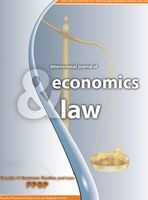Indicators Of Economic Analysis Of Projects Dealing With Urban Water Supply And Sanitation Problems
Indicators Of Economic Analysis Of Projects Dealing With Urban Water Supply And Sanitation Problems
Author(s): Radoljub Tomić, Siniša Arsić, Miloš ArsićSubject(s): Economy
Published by: Fakultet za poslovne studije i pravo
Keywords: Cost-benefit; project; water supply; environment
Summary/Abstract: This paper displays modern trends in projects in the area of environment protection. It presents several examples from around the world, which deal with water sanitation treatment. The investment process is characterised with single or multiple long-term investments, which provide effects in the future. To be able to review and execute a feasibility study, it is necessary to determine and analyze expected overall effects, which an investment should provide. Investors are interested only in direct economic effects, which can be measured exactly, and quantified properly. Meanwhile, for indirect non-economic effects, which are very hard to be measured, investors are not interested enough. But, during project feasibility evaluation, all effects which a project brings to society should be examined. Overall identified benefits, of implementing only water sanitation projects in urban areas, go up to 556 billion euros. In this paper, several examples were given, as well as the current state in Serbia, regarding urban water supply and sanitation projects. Aim of this paper is to explore indicators of economic analysis, to be able to identify new business opportunities (for profit) and opportunities for environmental preservation, all together respecting regulation and legal principles of the European Union.
Journal: International Journal of Economics & Law
- Issue Year: 4/2014
- Issue No: 12
- Page Range: 29-34
- Page Count: 6

